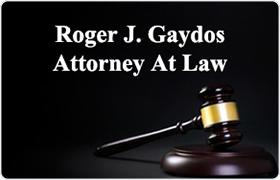Claysville Land Use & Zoning Lawyer, Pennsylvania
Sponsored Law Firm
-
 x
x

Click For More Info:
-
Roger J. Gaydos Attorney At Law
407 Oak Spring Rd. Canonsburg, PA 15317» view mapReal Estate Law A True Respect For The Law
Roger has attracted thousands of legal clients from all walks of life with a simple but important philosophy: "The law is friendly and he can prove it."
800-925-0620
Michael K. Vennum
Land Use & Zoning, Oil & Gas, Municipal, Commercial Real Estate
Status: In Good Standing Licensed: 31 Years
Templeton Smith
Medicare & Medicaid, Land Use & Zoning, Education, Municipal
Status: In Good Standing
Michael B. Jones
Land Use & Zoning, Employment, Adoption, Personal Injury
Status: In Good Standing Licensed: 31 Years
Templeton Smith
Federal Appellate Practice, Land Use & Zoning, Municipal, Health Care Other
Status: In Good Standing Licensed: 47 Years
David Furer Toal
Commercial Real Estate, Land Use & Zoning, Real Estate, Estate Planning
Status: In Good Standing Licensed: 46 Years
 Roger J. Gaydos, Sr. Canonsburg, PA
Roger J. Gaydos, Sr. Canonsburg, PA Practice AreasExpertise
Practice AreasExpertise
